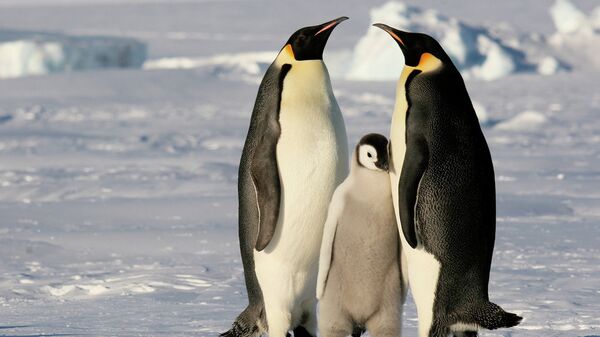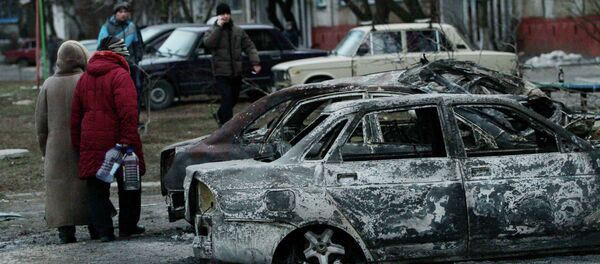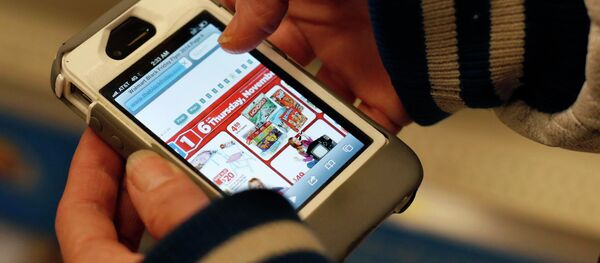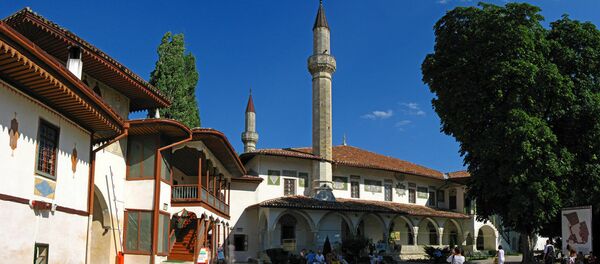The year-old EU/US sanctions against Russia have hit both entire economic sectors and individuals, leading to the sliding ruble, soaring consumer prices and various restrictions for the local Crimean population.
The Crimean republic rejoined Russia in March 2014, prompting the introduction of the first round of EU sanctions. Residents now struggle to overcome a blanket ban on Schengen visas and even have to resort to loopholes, such as falsifying paperwork to pretend they live in another Russian region.
Sanctioned Steeds
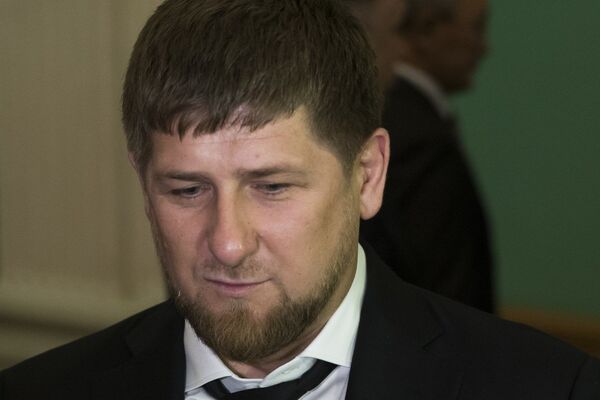
But one of the oddest cases involved Chechen Republic leader Ramzan Kadyrov's horse, Zazu, whom organizers of the Baden-Baden Derby refused to grant prize money, allegedly because its owner was on the US, the EU and other countries' blacklists. They also froze funds reserved for the upkeep of Zazu and another of Kadyrov's charges, Dashing Home.
The story had a happy ending. The German authorities eventually backed down, releasing the blocked prize money account and allowing Kadyrov horses compete in EU tournaments.
The Curse of Being an Ivanov in Russia
Yet another accidental victim was Sergei Ivanov, an employee of the Metro newspaper in St. Petersburg, who ordered a pair of shoes from an American online shop, only to receive a reply that the order could not be delivered because he was on the list of persons sanctioned by the US government.
The Russian presidential chief of staff, Sergei Ivanov (the actual target of the sanctions), wrote a letter to his namesake, saying he hoped the problem would be resolved. It eventually was.
A similar incident occurred when another Sergei Ivanov from St. Petersburg, who had ordered some computer components through eBay, had both his bank card and PayPal account closed by US authorities.
Penguins, Keep Out!
EU sanctions disrupted contracts to deliver penguins and giraffes from the Dvur Kralove Zoo in the Czech Republic to the Skazka Zoo in Yalta, Crimea. The Czechs justified their refusal to sell the animals by explaining that it was a recommendation of the country's foreign ministry and Brussels.
Since all zoos in the world constantly need to rotate and exchange their animals, the Yalta zoo contacted zoos in South American countries that did not support the European antics.
Before the New Year, however, Crimean zoos received beasts and birds from Germany and the Czech Republic, despite the crossing of four borders to deliver the animals under earlier contracts requiring some inventiveness.
A Blow to Apple Lovers
The US tech company also decided to break off cooperation contracts with local developers of applications for the App Store (iPhone and iPad). This means that companies registered in Crimea will be unable to post their apps on the App Store, at least until they change their official registration. Despite this, local residents can still buy Apple devices from numerous retailers.
A Case of Mistaken Identity
This turned out to be yet another instance of mistaken identity as Ukrainian border guards mixed the journalist up with Dmitry Kiselev, Director General of Russia's Rossiya Segodnya International Information Agency, whose name appears on the EU and Ukrainian sanctions list. Yevgeny, who has a Ukrainian residence permit, was allowed in after all.
Ethnic Discrimination
Last spring, one Tomas Krcmarz, a hotel owner in the Czech Republic, canceled the reservations of Russian tourists in his hotel, Brioni, in protest against Crimea's accession to Russia. Later he admitted that his act was discriminatory and pledged that he was ready to face the consequences of his actions.
Another incident occurred at a Swiss ski resort in early 2015 when a Swiss ski school expelled a family of Latvians of Russian descent. The administration rejected charges of discrimination, asserting that Pavel Gognidze, a citizen of Latvia, was banned from visiting the school for reasons other than his ethnicity or language. No further explanations were offered.
A British company in Switzerland, OTP Holidays, refused to sell ski-lift tickets to Russian nationals, citing the crisis in Ukraine. The ban was lifted several days later, and a provision to that effect was deleted from the company website.
The Health Ministry Warned You
Sanctions were also behind certain Russian citizens being unable to receive medical treatment in Europe.
A case in point is the famous singer and Russian lawmaker, Iosif Kobzon, who will now be treated in Russia instead of Germany. Russian oil businessman Gennady Timchenko, targeted by US sanctions, was unable to pay for his wife's surgery because the United States had blocked his accounts.
The European Union's sanctions against individuals were due to expire on March 15 of this year, but the European Commission on Friday extended them for a further six-months.
